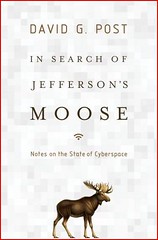“Open government” can mean various things to different people, but a couple of articles I’ve recently read suggest that solutions for opening the government vault of information should focus on the “way” and not the “what.”
read suggest that solutions for opening the government vault of information should focus on the “way” and not the “what.”
Why is this distinction important? Well, it takes the initial focus away from vendors lobbying that their products are more “open” and forces governments to reexamine how they collect, store and disseminate data. It is this hard look that will really make the difference, I think. And there are two interesting articles that highlight processes toward openness.
The first is an article by Daniel Ballon at PRI, where he writes about the perils of being too vendor focused when making government more open. He developed an illustrative table where he breaks down three purposes for technology in promoting transparency (transparency, government communication with citizens, and government collaboration with third-party sites). There will be different government processes needed for each purpose — for instance, creating ways for private systems to more easily data mine public databases.
The second is an article by Douglas McGray of New America Foundation in the Jan/Feb edition of the Atlantic Monthly. McGray hypes up the importance of API documentation. Governments should publish API information and allow the development of third-party applications to more easily synchronize with government databases. While McGray confuses open formats (such as releasing data in text, comma delimited format) with APIs (documentation that tells programmers how to interact with a specific application), the article is still instructional.
 Seeing Adam’s recent post on the stimulus and its advocates, I had to toss in my two cents.
Seeing Adam’s recent post on the stimulus and its advocates, I had to toss in my two cents.
2008 was the year of Schumpeter. Creative destruction was doing its thing, getting rid of many unproductive old-economy companies that were simply creating economic waste by keeping inputs from going to their highest-value use. But this scared a lot of people who had grown used to the benefits capitalism had given them and who were therefore quite risk-averse. Even the entrepreneurs, upon whose ingenuity growth rested, had grown risk-averse and were demanding bail-outs of their own. As the government gave into demands for stability, the risk-taking class upon which prosperity rested began withering away.
If 2008 was the year of Schumpeter, 2009 may be the year of Hazlitt. In Economics in One Lesson, Hazlitt describes a mode of argument all too common in politics: the broken window fallacy. The notion is that by taking money from some and spending it, the government is “creating jobs” and enhancing productivity because money is circulating. Of course, this ignores what the people whose money was taken would have done with it. In other words, it is not beneficial to just spend money, no matter how badly. That is precisely the point that Eugene Robinson and other stimulus proponents seem to have missed.
Here’s a screen grab of the Whitehouse.gov five-day review page. I figured I should preserve it because it is not likely to be on the site for long. President Obama just signed his second piece of legislation into law, and it didn’t get the five-day review either.
Here’s what that page says:
FIVE DAY REVIEW
President Obama wants you to get involved in the legislative process.
The Obama-Biden Administration is committed to bringing new levels of openness, transparency, and participation to our government. That’s why the President has pledged to post all nonemergency bills that come before his desk on WhiteHouse.gov for five days, where members of the public will be able to read, review, and comment before he takes any action on them.
There is currently no legislation awaiting the President’s signature. We hope you’ll come back to this page frequently, and share your input on the important legislation that will affect you, your community, and the nation in the years to come.
In the meantime, please use the form below to share your ideas on any issue that matters to you.
Uh, yeah, there’s no legislation awaiting the President’s signature because he signed it right away!
I wrote more about this step away from transparency here.
Julian Sanchez at ArsTechnica delivers some unsettling news about the state of free speech in America’s education system:
A federal court has rejected a former student’s First Amendment suit against school officials who punished her for calling them “douchebags” in a LiveJournal post. Right now, the scope of student rights to online speech is anything but clear.
This case centers around Avery Doninger, a grad of Lewis S. Mills High School, who called school administrators “douchebags” on her LiveJournal blog. Why? Because of the “possible cancellation of a repeatedly-postponed student concert,” according to Sanchez. Avery, a student council member, was barred from running for reelection because she dropped this D-bomb.
The Supreme Court has wrangled with the issues of campus speech codes in the past and has drawn some unclear lines—at least to this untrained, non-lawyerly mind—about where free speech begins and ends for students. Sanchez speak to this point as well, explaining the federal court’s difficulty with this decision:
Citing the blurry line between “on-campus” and “off-campus” speech in the Internet era, the court acknowledged that current law gives no clear answers to the question of where students’ rights to free online speech end and the authority of schools to enforce discipline begins.
It seems to me that the line should be clear. If you’re at school, you follow the rules. If you’re at a school event, like a football game or a debate tournament (that would have been me in school) then you follow the rules. But, if you’re on your blog at home, you get to say whatever the hell you want.
Continue reading →
 Reminder: Next Wednesday, February 4th, the Cato Institute will host a book forum on David Post’s new book, In Search of Jefferson’s Moose: Notes on the State of Cyberspace.
Reminder: Next Wednesday, February 4th, the Cato Institute will host a book forum on David Post’s new book, In Search of Jefferson’s Moose: Notes on the State of Cyberspace.
Comments will come from Clive Crook, Chief Washington Commentator of the Financial Times and Senior Editor of The Atlantic Monthly; and Jeffrey Rosen, Professor of Law at The George Washington University and Legal Affairs Editor of The New Republic.
It’s a very interesting book, and the commentators are second to none.
Register here.
And here’s Adam’s review of the book.
 I’m delighted to welcome to the TLF my colleague Adam Marcus, Research Fellow & Senior Technologist at The Progress & Freedom Foundation. Adam’s already written a few posts here on the TLF about edge caching and cloud computing—cross-posted over the last few months by Adam Thierer and me. He also appeared on TechPolicy Weekly 38 to discuss “The Google Kerfuffle — Edge Caching & Net Neutrality.”
I’m delighted to welcome to the TLF my colleague Adam Marcus, Research Fellow & Senior Technologist at The Progress & Freedom Foundation. Adam’s already written a few posts here on the TLF about edge caching and cloud computing—cross-posted over the last few months by Adam Thierer and me. He also appeared on TechPolicy Weekly 38 to discuss “The Google Kerfuffle — Edge Caching & Net Neutrality.”
Adam (a/k/a “Marcus”) brings an exceptional technological sophistication to bear on policy issues. He’s already been a real asset to our work at PFF as a sort of “technical ombudsman,” helping us delve into the nitty-gritty details behind the debates. I hope he’ll play somewhat the same role here on the TLF: keeping us honest and checking our facts.
But he’s not just another geek: With a J.D. from Santa Clara University and an MA in Communications, Culture & Technology from Georgetown University, Adam has lots to say about the legal and policy issues covered by the TLF.
I hope you all enjoy getting to know him—whether through the blog or in person at our semi-regular Alcohol Liberation Fronts—as much as I have.
Sun Chairman Scott McNealy seemingly wants to shine some light on the benefits of software that is open sourced, but by advocating government mandates he’s calling for the specter of regulatory darkness. Here’s a quote from him in a BBC article:
“The government ought to mandate open source products based on open source reference implementations to improve security, get higher quality software, lower costs, higher reliability – all the benefits that come with open software.”
One could dispute the substance of his comment, but not his motive:
“Open source does not require you to pay a penny to Microsoft or IBM or Oracle or any proprietary vendor any money.”
Ah, so it’s all about some businesses getting a leg up over others, and using government to do so. Even Matt Asay writes that he’s not a supporter of mandates.
The scary thing is that, according to the BBC article, McNealy has been asked to prepare a paper on open source for the Obama administration! As the new administration is touting open government, let’s hope it remains open to the best products that are available, whatever license they may carry, without tech mandates.
My problem with what Nick Carr is saying about Wikipedia here — as well as in his book The Big Switch — is that he always seems to assume that Wikipedia constitutes the totality of most searches for information online. I suppose it does for some people, but I have a hard time accepting the argument that everyone’s search for enlightenment ends there, even if Wikipedia does rank high in many search results today.
For me, Wikipedia is just a launch pad; a great starting point in the search for truth. I take much of what I read on Wikipedia with a large grain of salt, however, because I know not every entry is as trustworthy as others, and entries could change at any moment. But that’s true of much of what one finds online! If one adopts a sort of caveat emptor attitude toward Wikipedia, and then uses it to seek out truth from alternative sources found in each entry, or from other searches, then were is the harm? Only if one could show that the search for truth ends with Wikipedia would I be as concerned as Carr and other Internet pessimists and Wikipedia critics (like Lee Siegel and Andrew Keen). But I just don’t believe that is the case.
Moreover, it is impossible for me to believe that we have fewer authoritative sources of information at our disposal today than we did in the past. Continue reading →
 read suggest that solutions for opening the government vault of information should focus on the “way” and not the “what.”
read suggest that solutions for opening the government vault of information should focus on the “way” and not the “what.”
 Seeing
Seeing 
 I’m delighted to welcome to the TLF my colleague
I’m delighted to welcome to the TLF my colleague  The Technology Liberation Front is the tech policy blog dedicated to keeping politicians' hands off the 'net and everything else related to technology.
The Technology Liberation Front is the tech policy blog dedicated to keeping politicians' hands off the 'net and everything else related to technology.